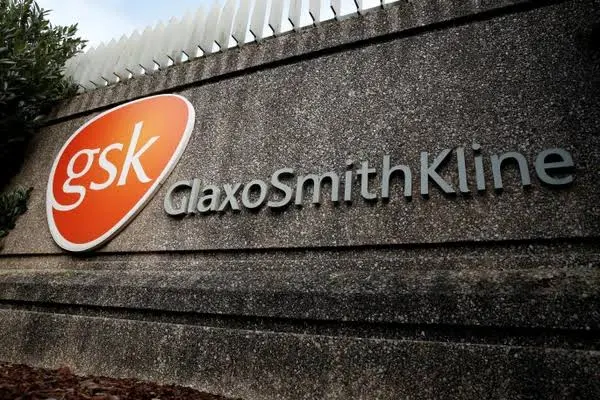Renowned for products such as Panadol, Lucozade, Ribena, Macleans and Sensodyne that a lot of Nigerians have grown fond of, the British pharmaceutical giant GlaxoSmithKline Plc (GSK) has called off its operations in Nigeria after about 52 years.
The GSK UK Group has halted commercialising its prescription medicines and vaccines in Nigeria through GSK Nigeria. The plan is to transition to a third-party direct distribution model for its pharmaceutical products and consumer healthcare goods, as contained in its statement to the Nigerian Exchange Limited. The announcement was made on the day that GSK Nigeria published its half-year 2023 financials, which showed a significant drop in revenue — ₦7.8 billion from a corresponding value of ₦14.8 billion in the first half of 2022. This is more than a 50% drop in revenue in the same period.
The firm also announced that the company was working with its advisers to agree on the next actions as it plans to submit a scheme of arrangements to Nigeria’s Securities and Exchange Commission (SEC) for the possible return of capital (cash) to its local shareholders. The group said shareholders other than its UK parent company would “receive an accelerated cash distribution and return of capital if the regulator approves the plan”.
Though the company did not give a reason for this move, except earlier signalling in June that the foreign exchange shortages in Nigeria were negatively affecting its operations, several deductions have been made regarding what caused the company to withdraw from the country. On top of the list is the inability of the company to secure the much-needed foreign currency, which is important to repatriate revenue earned in the country and to purchase raw materials from abroad. A spokesperson for the company pointed out that the challenge of accessing foreign currency affected the ability to maintain a consistent supply of medicines and vaccines in the market. There has also been the view that GSK Nigeria could not keep up with the stiff competition from Indian and Chinese drugs, which has unseated their dominance in Nigeria, as they are cheaper alternatives.
Advertisement
For GSK Nigeria, this development is laden with layers of complexity driven by a mix of internal challenges within the company and external factors. Still, how it is perceived and the implications do not translate well for Nigeria, especially in unemployment and human capital development.
GSK Nigeria reported 18.14% growth in its profit before tax (PBT) for its 2023 second-quarter results, reaching ₦274 million. Despite the difficult climate, as shown by the decline in revenue, the business increased earnings. The decrease in operational costs and the rise in finance income were the main factors contributing to this favourable outcome. This implies that “there is more to it than meets the eye”. GSK’s exit from Nigeria is not merely a result of external circumstances; it is closely intertwined with a series of internal challenges the company has been grappling with.
There have been reports of an ongoing dispute between GSK Nigeria Plc and its Nigerian shareholders over capital reorganisation. 46.4% of the shares of the company are held by Setfirst Limited and Smithkline Beecham Limited (both incorporated in the United Kingdom), and 53.6% by Nigerian shareholders. GlaxoSmithKline Plc, United Kingdom (GSK Plc UK) is the ultimate parent and controlling party. GSK Plc UK (they own the majority stake) controls the company through Setfirst Limited and Smithkline Beecham Limited.
Advertisement
Insider reports are to the narrative that the parent company has been blocking moves of the Nigerian shareholders to increase their capital share. There have been internal struggles for influence and control, where their Nigerian shareholders seek to elevate their stake in the company’s operations within the country. This dispute reportedly involved efforts to bolster local representation and decision-making power,to aligng business strategies with the unique challenges and opportunities presented by the Nigerian market.
However, these attempts were met with resistance from the parent company, leading to a deadlock over the issue of increased capital share. The perceived reluctance of GSK’s headquarters to cede more control to Nigerian stakeholders played a pivotal role in fuelling frustrations and accelerating the company’s decision to exit the market, with the current economic situation serving as a guise. This narrative further underscores the intricate power dynamics between multinational corporations and their local partners, highlighting the challenges of finding common ground and fostering collaboration amidst divergent interests.
The effects of this kind of stand-off over shareholder capital go beyond the boardroom as it sends echoes throughout Nigeria’s economic landscape. The departure of GSK and reports of internal strife may negatively impact how the public views foreign investments in Nigeria. This power struggle serves as a stark reminder of the tensions that can arise between multinational corporations and local partners, casting shadows over Nigeria’s attractiveness as an investment destination. There could also be a health dimension to this exit, regarding the accessibility of healthcare and essential medicines, due to the interruption to the supply chain that the departure will cause.
More importantly, GSK’s exit allows us to reevaluate how foreign companies engage with Nigerian stakeholders, emphasising the need for more inclusive and collaborative business strategies and corporate governance practices.
Advertisement
As Nigeria and other emerging economies continue to navigate the intricate landscape of multinational investments, the case of GSK serves as a testament to the importance of fostering synergy between global corporations and local stakeholders. While the exit undoubtedly raises concerns, it allows both sides to reflect on collaborative approaches that balance growth, ethical responsibility, and mutual benefits.
However, the truth is that a series of developments have affected not just GSK Nigeria but the manufacturing sector at large. Inflation has been climbing to record levels, reducing the purchasing power of Nigerians. There was also the cash crunch due to the Naira redesign policy, from which the country has yet to fully recover. The much-needed removal of the petrol subsidy and the foreign exchange reforms have further compounded the situation given their less-than-stellar implementation. The aforementioned events and their poor implementation have translated to increased operational costs for multinationals, with income and trading capital eroding.
Nigeria’s economy has been dealt severe blows in recent times, and there have been calls for the Tinubu administration to review the short-term impact of its economic policies to stop the trend of businesses leaving Nigeria. Moves by the government to appear as a listening government and reinstate the subsidies for both petrol and FX in some form would be a mistake. However, the stark truth is that even these correct economic policies of removing consumption subsidies cannot work wonders for the economy, especially Nigeria’s new foreign exchange policy. Structures should first have been implemented to cushion the effects of removing both subsidies. Also, government behaviour needs to change. Government agencies need to learn to act properly to attract foreign direct investments and ensure export growth.
Nwanze is a partner at SBM Intelligence
Advertisement
Views expressed by contributors are strictly personal and not of TheCable.
Add a comment







